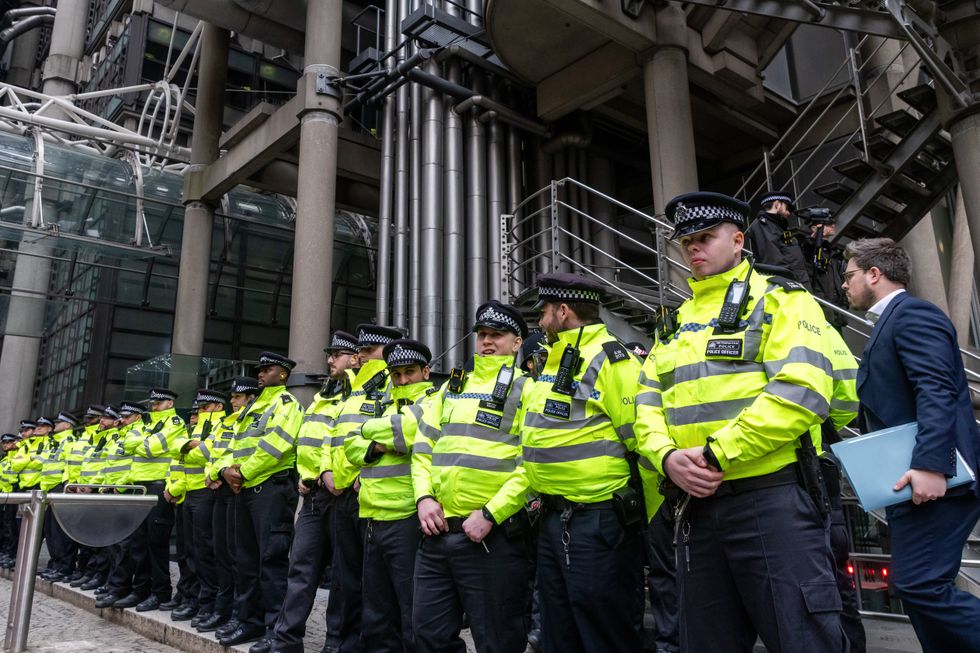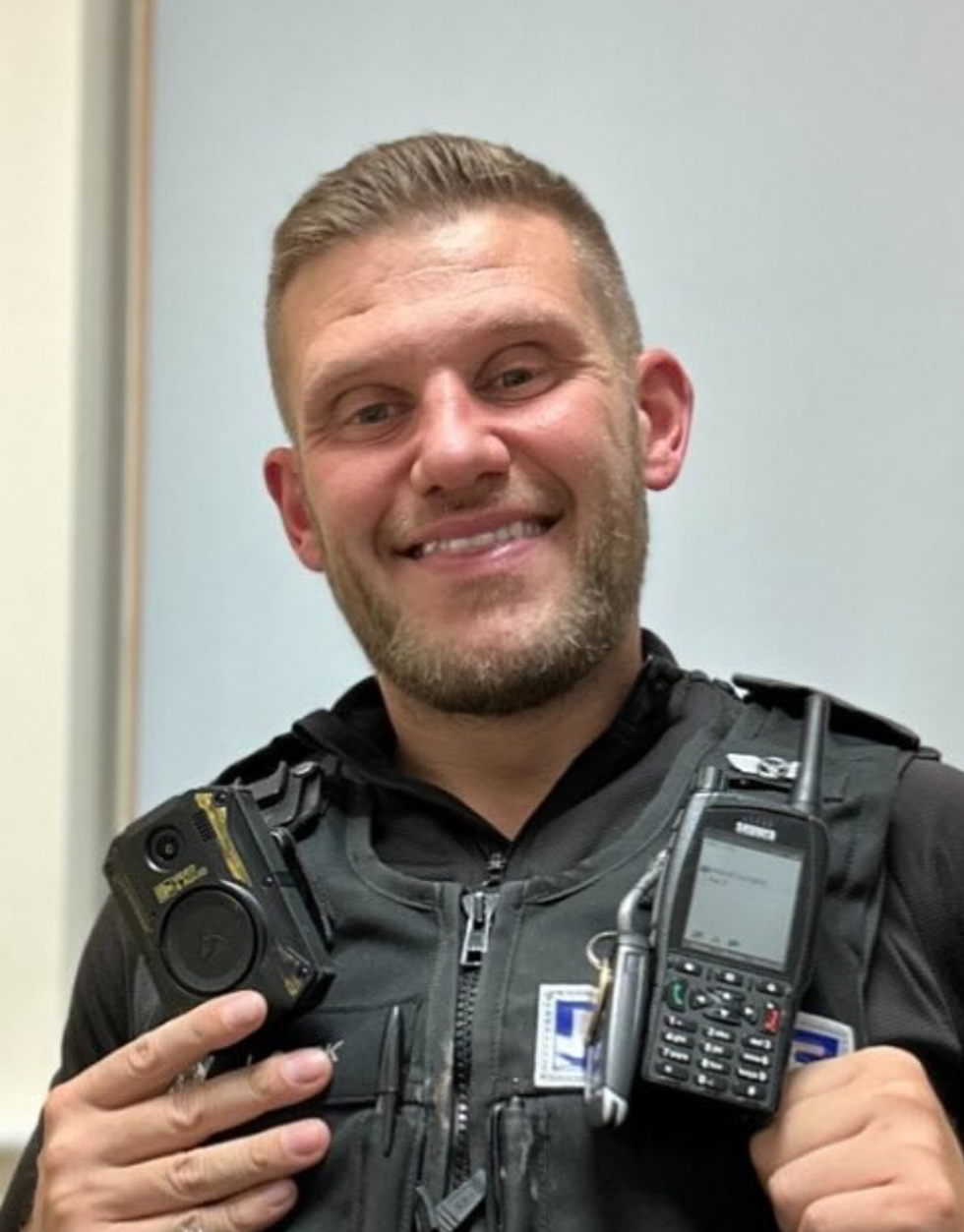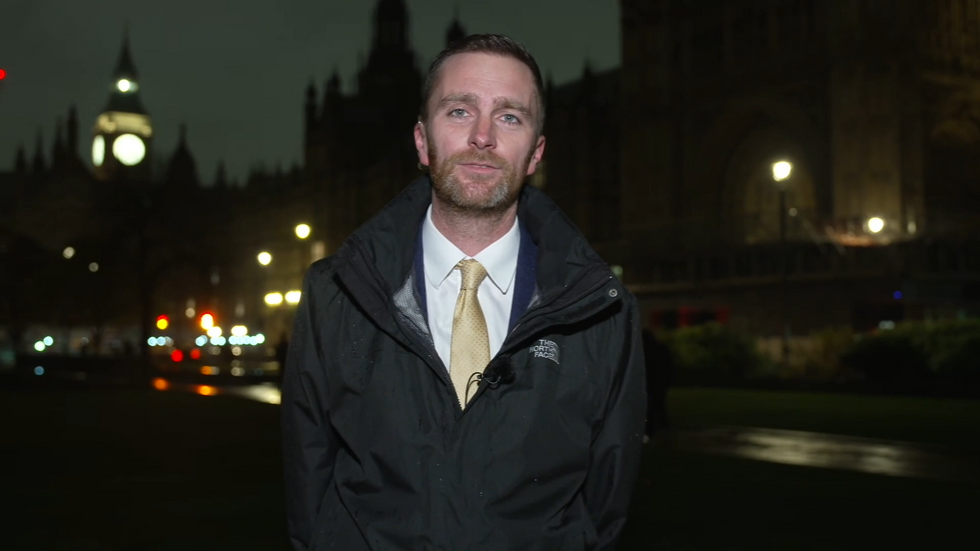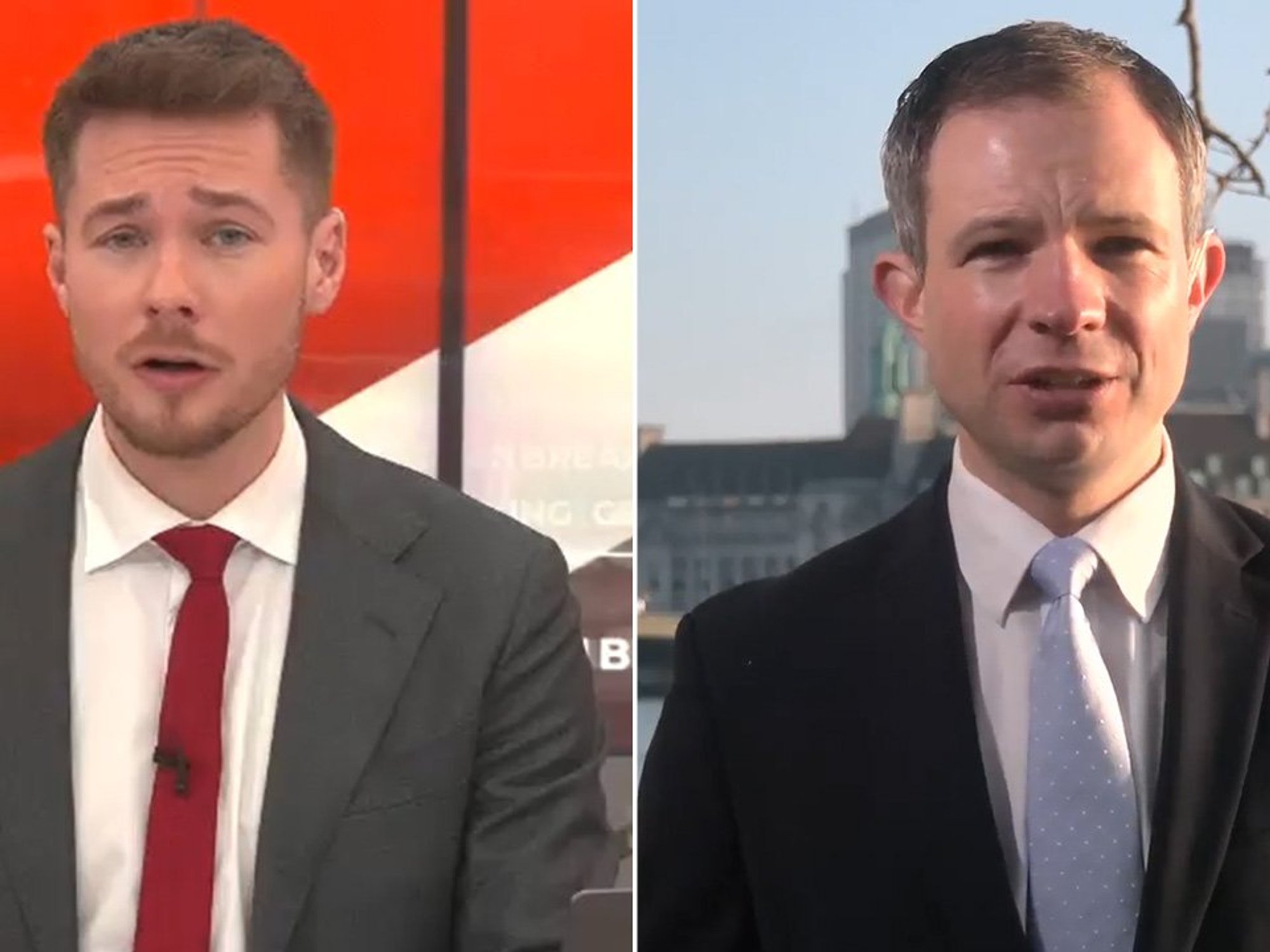New figures reveal thousands of officers on mental health leave as federation warns number of police off work could be 'far bigger'

Veteran amputee calls for mental health support for ex-soldiers: "Suicide risk is high!" |
GB NEWS

An average of 74 officers per force have been sidelined due to mental health or psychological leave
Don't Miss
Most Read
Trending on GB News
Thousands of serving police officers are off the streets due to mental health or psychological leave, a GB News investigation has found.
An average of 74 officers per force are sidelined due to mental health issues, with the leading police federation fearing numbers could be "far bigger than official figures suggest".
GB News submitted a Freedom of Information request at 39 police forces in England, along with the four in Wales, Police Scotland, Police Service of Northern Ireland and British Transport Police - however, only 37 responded at the time of publication.
Officers across the country are fighting for investment in "wellbeing, fair pay, and manageable workloads" as the demands of the job were laid bare with figures revealing 2,740 officers from the responding police forces are away from their duties.
TRENDING
Stories
Videos
Your Say
A Police Federation of England & Wales (PFEW) spokesman told The People's Channel that every absence increased "the burden on already stretched teams" which in turn would create "a vicious cycle where more officers risk becoming unwell" along with affecting the "public's access to policing".
The shocking figures show that the longest a serving officer - stationed at Greater Manchester Police - has been sidelined is 1566 days (approximately four years and two months), according to the force's latest available data.
An Avon and Somerset Police officer has been off duty for 1311 days as of July 31.
Each police force records their own data separately, meaning the figures are not generic or uniform and response times have varied between each force across the country.
However, it is the latest data available and some officers included in the list may have returned to the beat since figures were released.
LATEST DEVELOPMENTS:

The Metropolitan Police has 429 officers sidelined due to mental health or psychological leave
| GETTYOut of all responding forces, the Metropolitan Police has topped the list with a total of 429 officers on a form of psychological leave - which could include, anxiety, stress, depression or other psychological disorders.
The Police Service of Northern Ireland - 276, West Midlands Police - 155, Devon & Cornwall Police - 136, Greater Manchester Police - 112, South Wales Police - 115 and Merseyside Police - 107, each had more than 100 officers currently out on leave.
The PFEW spokesman said: "The figures are very concerning and shows the toll policing takes on officers' mental health.
"When so many are sidelined due to stress or psychological injury, it highlights a system under real strain.
"Our Copped Enough campaign has warned that officers are being pushed too far and need urgent support."

Ian Cook served in the West Midlands Police force for 18 years
|The spokesman added that many officers "fear stigma or career damage if they admit they are struggling".
"Meaning the problem is far bigger than official figures suggest. Breaking down this culture is vital so officers feel safe to seek help when they need it," he said.
Former West Midlands Police officer Ian Cook echoed the spokesman’s sentiments, saying that departments were “trying to do more with less” as a result of insufficient numbers on rosters.
Mr Cook had served in the force for 18 years before starting Blue Light Lifestyle and becoming an online coach to “offer people a safe space”.
“A lot of officers and staff members don’t feel like they can put their hand up and ask for help,” he said.
“There’s still that stigma that if you … ask for help then are you going to get it?”
But, Mr Cook added that some officers feared repercussions and being “removed from frontline duties”, adding that he believed “there’s hundreds, probably thousands” of officers putting on a brave face and “fake smiling every day”.
He said: “(They’re probably) worrying about the fact that they can’t speak up … in reality they actually need some support and help.
“Especially if you’re on firearms … you’re not going to put your hand up and say you’re struggling because the first thing that’s going to happen is you’ll get your firearm authority rescinded.
Shadow Policing Minister Matt Vickers told GB News that the figures “speak for themselves” and that cuts from the Labour Party had been “gutting frontline policing” and ultimately leaving officers “more overstretched and under pressure than ever”.
“The Conservatives delivered record police numbers and backed them with record funding because we understood that wellbeing comes from forces having the numbers and resources to do the job,” Mr Vickers said.
He added: “Labour have slashed both, and officers are paying the price. At the same time, Labour slapped police forces with a £118million funding shortfall and £230million in extra costs through their Jobs Tax, together swallowing the salaries of 5,400."

Matt Vickers criticised Labour's cuts to policing which have left officers 'overstretched'
| GB NewsThe Shadow Policing Minister said: “That is not how you look after police wellbeing”.
Some forces across the UK still have officers sitting on the sidelines for more than one month.
The largest force in the country, the Met Police, has 284 officers off duty while Devon & Cornwall has 108, West Midlands with 104 and the Police Service of Northern Ireland with 227.
While GB News put questions to Policing Minister Sarah Jones about whether mental wellbeing was a pertinent issue for the Government and if officers were receiving adequate support, a Home Office spokeswoman said the department expressed “the utmost gratitude to police officers who show great bravery and sacrifice throughout their service”.
The spokeswoman added that the Home Office remained “committed to supporting their mental and physical wellbeing” and the department was “working closely with police leaders and staff associations to support this”.
“This includes providing funding to the National Police Wellbeing Service who have recently launched their new mental health crisis support line, which ensures officers and staff can access immediate, confidential help when they need it most,” the spokeswoman said.
“The Police Covenant is also delivering improved occupational health standards for officers in service.”
The Home Office did not answer questions about what initiatives the Government was doing to address low recruitment numbers.
Mr Vickers asked: “Why would bright young recruits join a force where morale is on the floor, where workloads pile higher every month, where colleagues are burning out and leaving?”
He claimed that recruitment had “dropped by 17 per cent in Labour’s first year in office”.
“Even in their flagship neighbourhood police plan, only 3,000 of the 13,000 are actually new officers,” Mr Vickers said.
However, Reform UK’s Crime Adviser Colin Sutton, said the data was more nuanced and a “lack of resourcing” since 2010 had strained forces across the country.

Reform UK’s Crime Adviser Colin Sutton has blamed a 'lack of resourcing' for straining police forces across the country
| PAThe former Met Police Detective Chief Inspector added that there had been greater "recognition" over the past two decades that mental illness within police was a real issue and that some officers found "themselves traumatised or upset ... or haunted" by experiences on the job.
What Mr Sutton believes is a fundamental issue is "wastage" of some work or the "difficulty in recruitment".
"You've got people who want to serve their community ... and they find that they go through the training ... and when they're working the job isn't really what they thought it was going to be," he said.
That includes issues like "freedom of speech and social media policing as opposed to street policing".
He added: "I've actually spoken ... with people who have either left the service or are thinking of leaving the service who say well, I didn't join up to police Twitter or Facebook."
Mr Sutton was announced by Nigel Farage as the party's crime adviser - at the same time the Reform leader made the election pledge of recruiting 30,000 more police officers, meaning roughly 6,000 each year.
Mr Sutton admitted it was ambitious, but said the key to successful policing was about retaining experienced officers.
"If you're losing people who've got 10 to 15 years service and experience and replacing them with brand-new, out of the box probationers, you're losing a lot more than just numbers and people," he said.
While fixing workplace conditions is not an overnight job, Mr Sutton added that addressing officers' workloads and resourcing could be an answer.
More From GB News










